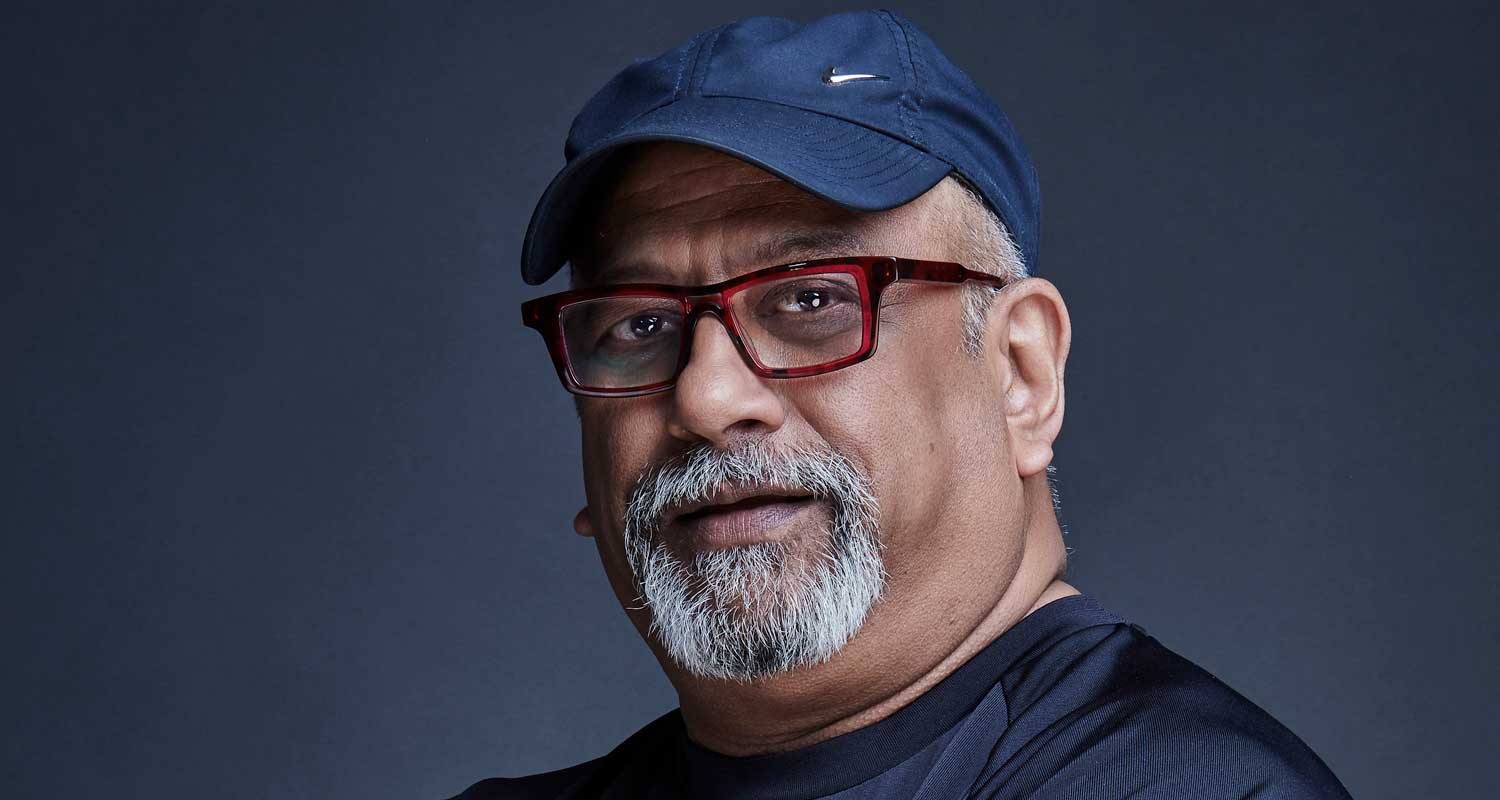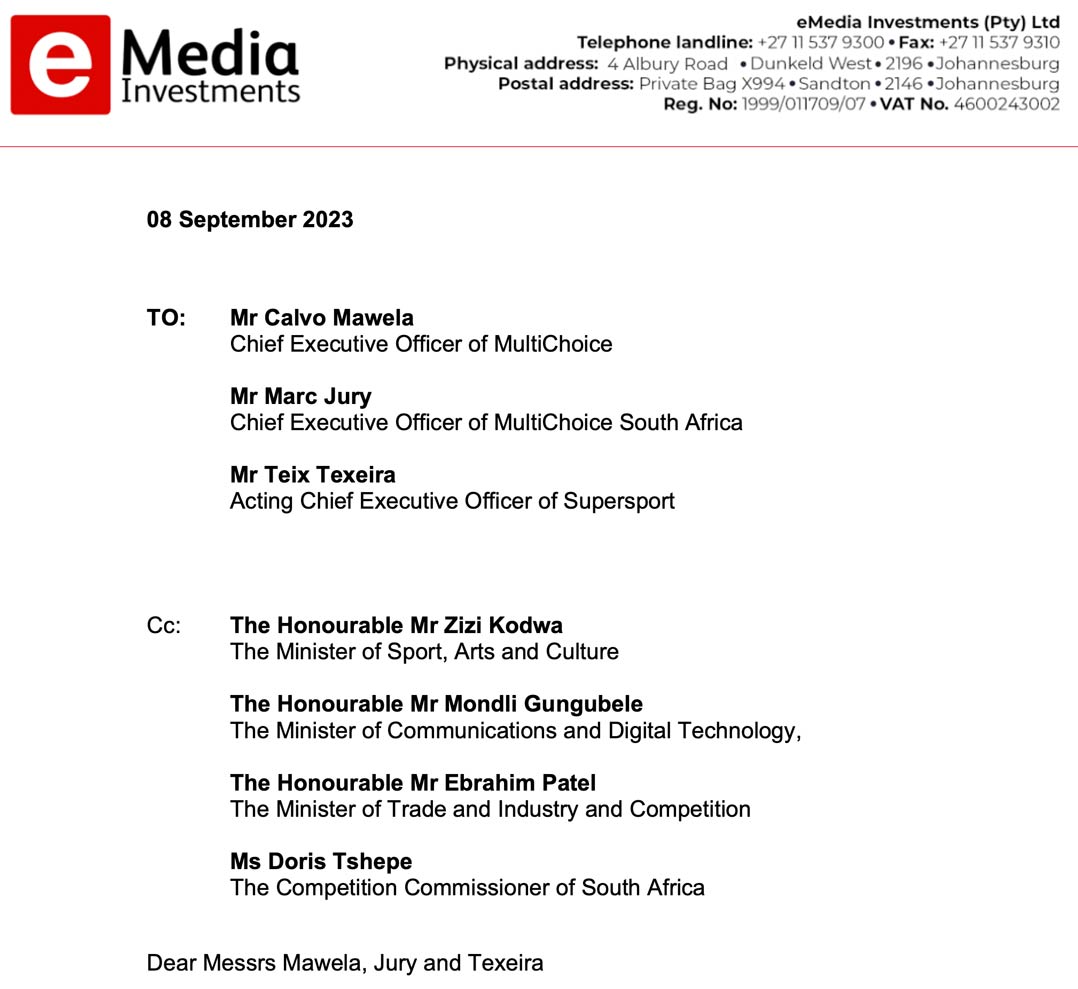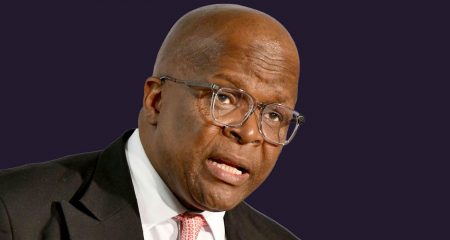
eMedia is threatening urgent action against MultiChoice Group over its sublicensing agreement with the SABC, which bars eMedia’s Openview from broadcasting games from the Rugby World Cup.
Springbok fans were relieved on Thursday when news emerged that MultiChoice had struck a Rugby World Cup sublicensing deal with the public broadcaster, albeit at the 11th hour.
But eMedia is not accepting the proffered olive branch after it emerged that MultiChoice insisted that the games not be carried on Openview, which broadcasts the SABC’s channels.
In an open letter to MultiChoice on Friday — copying in sports minister Zizi Kodwa, communications minister Mondli Gungubele, trade, industry & competition minister Ebrahim Patel and Competition Commission head Doris Tshepe — eMedia charged that 3.2 million “digitally migrated South African households will be deprived of viewing the Rugby World Cup on Openview” as a result of the terms of the sublicensing agreement.
“The irrational decision further undermines the national imperative of digital migration. It means that millions of SABC viewers are unjustly and unjustifiably being precluded from watching the Rugby World Cup, because of the conduct of MultiChoice in restricting the ability of the SABC to reach its viewers. This undermines consumer welfare and is contrary to the public interest,” the letter said. Read the full letter here (PDF).
eMedia’s Openview Satellite platform carries SABC1, 2, 3 and SABC Sport. “It is important to note that Openview does not generate any revenue from the SABC channels, which proves even more that the decision taken by MultiChoice makes no sense to deprive SABC viewers of access to the Rugby World Cup, especially now that five of nine provinces can only view television through the satellite platform,” the letter continued.
eMedia action
Until Thursday afternoon, it was unclear whether the SABC would be able to broadcast games as SuperSport owns the rights to the tournament and, despite negotiations, an agreement had not been reached.
According to the Sunday Times, the SABC was unable to pay the US$2-million (about R37-million) to sublicense the Springbok matches from MultiChoice. But a statement by MultiChoice said the two had come to an agreement for 16 of the 48 matches, which begin on Friday, to be aired. Had this not happened, only an estimated 1.3 million DStv subscribers in South Africa would have had access to the games.
eMedia CEO Khalik Sherrif said in a statement about the deal: “The anticompetitive action is nothing short of domination in trying to prescribe to the free-to-air partner on how to use its broadcasting rights. We believe the action should be strongly condemned and opposed. The 3.2 million households which have been affected by the decision should voice their dissatisfaction,” he said.
The broadcaster, which also owns e.tv and eNCA, has demanded a response from MultiChoice by 6pm on Friday, and warned that in the absence of a response, it reserved its rights to take legal action.
Asked for comment on eMedia’s statement and letter, MultiChoice group executive for corporate affairs and stakeholder relations Keabetswe Modimoeng said: “We have concluded a sublicensing agreement with the public broadcaster in full compliance with the sports broadcasting service amendment regulations. We are not in a position to comment on statements made by other commercial broadcasters.”

Oher industry players are not so sanguine.
Head of the Gibs media leadership think-tank and former SABC board member Michael Markovitz said: “While it is a big win for the South African public that the SABC has now sublicensed 16 Rugby World Cup games from SuperSport, it is disappointing that the pay-TV monopoly has again imposed anticompetitive conditions on the public broadcaster.
“The SABC still cannot show the games on any SABC channel, including its own SABC Sport channel, on the OpenView satellite platform. This means that more than 3.2million households will miss out and the SABC has to go through the additional cost of blocking the games on OpenView.
“The situation could have been averted if Icasa had adopted the SABC’s recommendations on unbundling of sports rights two years ago. Furthermore, the SABC lodged a complaint against SuperSport and sports federations at the Competition Commission 14 months ago on exactly the same issue. It is disappointing to hear that the commission has now kicked SABC’s complaint into next year,” Markovitz said.
Markovitz was referring to the comprehensive complaint to the commission lodged by the SABC in July last year against SuperSport and various sporting organisations in South Africa, accusing them of anticompetitive and exclusionary behaviour and asking that punitive fines be imposed.

The central allegation was that SuperSport has abused its dominance in sports broadcasting to impede the SABC’s ability to compete with its own standalone sports channel. This, it argued, was in contravention of the Competition Act.
It is further understood that the complaint dealt specifically with SuperSport’s sublicensing restrictions, which prevent the SABC from broadcasting sublicensed games on direct-to-home satellite or online streaming platforms.
This was not the first instance MultiChoice had been taken to task for its alleged monopoly over sports broadcasting. Communications regulator Icasa launched an inquiry in 2016 into similar charges, finding in April 2019 that MultiChoice had a dominant position in South Africa’s subscription broadcast market and proposing, among other remedies, that MultiChoice consider unbundling its sports rights.
However, MultiChoice disputed those findings, and Icasa agreed to conduct further enquiries, including public hearings. Nothing happened. — (c) 2023 NewsCentral Media




